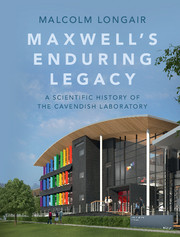Book contents
- Frontmatter
- Dedication
- Contents
- Preface
- Acknowledgements
- Part I To 1874
- Part II 1874 to 1879
- Part III 1879 to 1884
- Part IV 1884 to 1919
- Part V 1919 to 1937
- Part VI 1938 to 1953
- Part VII 1953 to 1971
- Part VIII 1971 to 1982
- Part IX 1984 to 1995
- Part X 1995 to present
- Appendix The evolution of the New Museums site
- Notes
- References
- Author index
- Subject index
Preface
Published online by Cambridge University Press: 05 July 2016
- Frontmatter
- Dedication
- Contents
- Preface
- Acknowledgements
- Part I To 1874
- Part II 1874 to 1879
- Part III 1879 to 1884
- Part IV 1884 to 1919
- Part V 1919 to 1937
- Part VI 1938 to 1953
- Part VII 1953 to 1971
- Part VIII 1971 to 1982
- Part IX 1984 to 1995
- Part X 1995 to present
- Appendix The evolution of the New Museums site
- Notes
- References
- Author index
- Subject index
Summary
The title and subtitle of this book deserve some explanation. To take the subtitle first, this book is a scientific history, rather than a history in the conventional sense – my interest and qualifications for writing it are as a scientist rather than as a historian. Specifically, my principal interest is in the content of the physics and how it came about, rather than a history of personalities, politics, administrative structures and so on. The latter topics cannot be ignored and obviously have a very significant bearing in framing the whole story, but that is not my prime goal. My objective is to set the scientific achievements in the context of the development of physics as a whole. This book is not a panegyric about the Laboratory, but an attempt to understand the areas in which it has been successful and what influenced the directions the research programme took.
The reason for the main title will become apparent as the story unfolds. James Clerk Maxwell was the first Cavendish Professor of Experimental Physics. His epochal scientific achievements in essentially all branches of physics need little emphasis here, but what is less well known is the profound effect his personality and research style had upon the early direction of the Laboratory. The achievement is all the more remarkable granted the rather barren field in which the seeds of future success were sown. Perhaps most significant of all is the remarkable agenda which Maxwell set for the Laboratory in his inaugural lecture of 1871. The subsequent history can be regarded as the working out of Maxwell's vision over succeeding generations of research workers. Tragically, Maxwell died in 1879 before the full impact of his agenda and reforms could be appreciated, but they were brought to fruition by his successors, Rayleigh, J.J. Thomson and Rutherford. By the time of Rutherford'sdeath in 1937, the Laboratory had more than 50 years of history behind it and had made revolutionary contributions to many areas of experimental physics. As the Laboratory continued to grow after the Second World War, the organisation of research had to change, but the essential Maxwellian philosophy was maintained at the research group level. At the same time, the Laboratory had to cope with the demands of ‘Big Science’ and to exploit the opportunities offered by large national and international facilities.
- Type
- Chapter
- Information
- Maxwell's Enduring LegacyA Scientific History of the Cavendish Laboratory, pp. xiii - xivPublisher: Cambridge University PressPrint publication year: 2016



